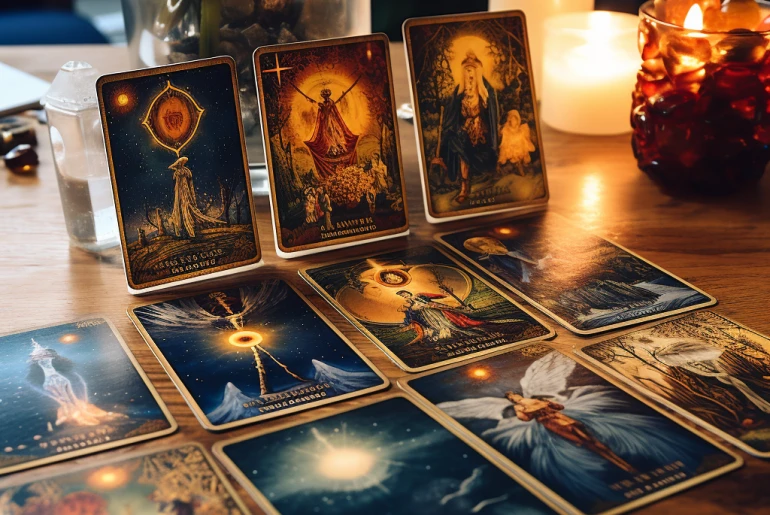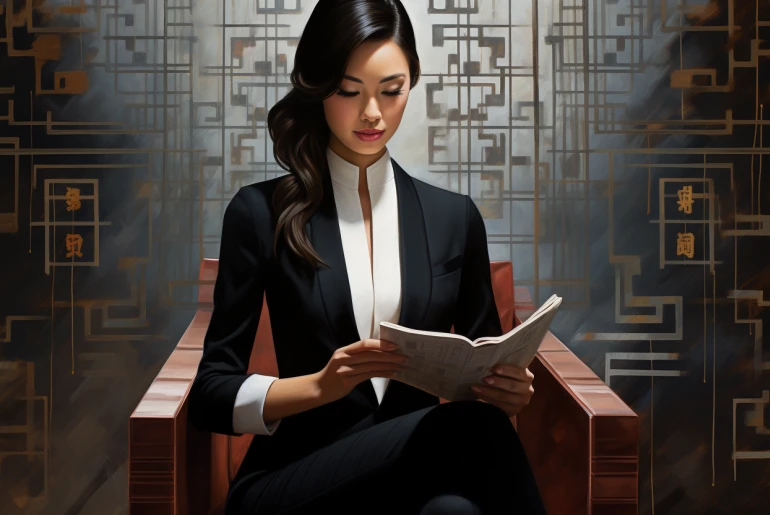Introduction
In the broad and fascinating realm of divination tools, Tarot and I Ching stand out as popular methods for seeking advice and personal insight. While some may opt for reading Tarot for free, others prefer the ancient wisdom of the I Ching, particularly the free I Ching readings available on our website. Although both may seem similar at first glance, they differ profoundly in their philosophies and methodologies. In this article, we will explore the significant distinctions between Tarot, often considered a more superstitious divination method, and I Ching, a tool designed for self-understanding and growth.
Tarot: The Superstitious Divination Method?
Tarot, featuring a deck of 78 intricately designed cards, is rooted in European history. It has become a prevalent method for seeking advice on everything from relationships to career choices. Tarot focuses on symbolism and storytelling, constructing narratives around drawn cards to provide insights into specific situations.

Key Features of Tarot
- Narrative Structure: Tarot involves storytelling, weaving a narrative around the cards to offer specific advice or insights.
- Card Spreads: Various spreads like the three-card or Celtic Cross can address different types of questions.
- Specificity: Tarot cards can get very specific, shedding light on particular events, feelings, or individuals.
I Ching: The Tool for Self-Understanding and Growth
Contrary to Tarot, I Ching or the Book of Changes has a rich philosophical basis in ancient Chinese traditions like Taoism and Confucianism. More than a divination tool, it is a guide for living, teaching you how to deal with various life situations with wisdom and grace. It comprises 64 hexagrams, created through methods like coin tossing or stick shaking, and offers layers of insights and interpretations.

Key Features of I Ching
- Philosophical Foundation: Unlike Tarot, I Ching offers a philosophical framework for understanding life's complexities.
- Actionable Wisdom: I Ching teaches you how to think and approach challenges, rather than just predicting outcomes.
- Open-ended Advice: The advice given is open to interpretation, meaning you can tailor it to your specific circumstances.
Easy and Accessible I Ching Readings
If the idea of interpreting ancient wisdom seems daunting, fear not. We offer free I Ching readings designed to be straightforward and insightful. For those who want more personalized, easy-to-understand, and actionable advice, Master Wu's premium I Ching reading service is also available.
Why They Are Not the Same
Divination Accuracy
- Tarot: Primarily considered a superstitious divination method by many.
- I Ching: While its divinatory aspects can be shockingly accurate, the primary value lies in its teachings on how to approach life’s challenges.
Philosophical Depth
- Tarot: Lacks a philosophical grounding, focusing more on predictive aspects.
- I Ching: Deeply rooted in ancient wisdom, aimed at promoting personal growth and better decision-making.
Belief Systems
- Tarot: Often requires a belief in mystical or superstitious elements.
- I Ching: You don't have to believe in anything specific to find value in I Ching, making it more universally applicable.
Conclusion
The allure of reading Tarot for free might be tempting for quick answers, but if you're looking for a tool that helps you understand yourself better and provides actionable advice, I Ching is the way to go. While Tarot leans more towards divination, I Ching serves as a guide for living a meaningful life, teaching you how to handle life situations intelligently and gracefully.
So, whether you’re interested in tarot reading for free or seeking deeper wisdom through I Ching, understanding the fundamental differences between these two will make your journey into the world of divination or self-discovery much more enriching.

